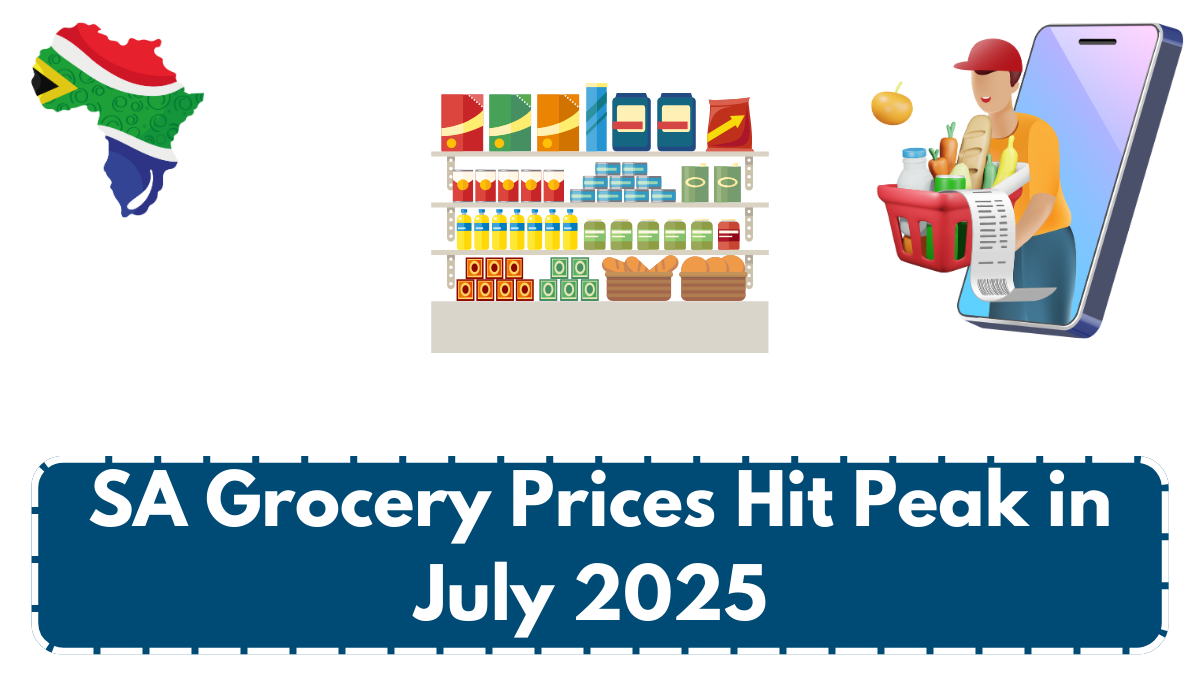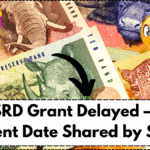South African consumers faced a harsh reality at supermarket checkouts: grocery prices hit an all-time high. According to recent retail tracking reports and market analysts, the Grocery Prices Spike SA scenario is becoming more than just a temporary hike — it’s reshaping the way South Africans live, eat, and budget. This comes amid a broader conversation around the rising cost of living in the country.

What’s Driving the Grocery Prices Spike SA?
Multiple factors are pushing South Africa food prices upward. Unpredictable weather patterns have disrupted agricultural cycles, limiting local food supply. Meanwhile, the ongoing strain on global logistics, especially post-pandemic and amid geopolitical tensions, has inflated import costs.
South Africa also grapples with a weakening rand, increasing the cost of foreign goods. Load shedding continues to cripple cold storage facilities and disrupt farming operations, driving operational costs higher. Combined, these elements have set the stage for the sharp grocery prices spike SA is currently experiencing.
The July 2025 Grocery Price Index: What Changed?
Recent data collected by independent watchdogs shows a significant price hike across essential items. Below is a breakdown of common goods and how their prices changed between May and July 2025:
| Item | May 2025 Price | July 2025 Price | % Increase |
|---|---|---|---|
| White Bread (700g) | R16.50 | R18.90 | 14.5% |
| Cooking Oil (2L) | R75.00 | R83.50 | 11.3% |
| Fresh Milk (1L) | R18.20 | R20.00 | 9.9% |
| Potatoes (7kg) | R49.90 | R56.40 | 13.0% |
| Chicken (Frozen, 1.5kg) | R68.00 | R75.30 | 10.7% |
This rapid inflation has left many households adjusting their shopping lists or cutting back on essentials entirely.
Cost of Living: Straining the South African Middle Class
The effect of rising South Africa food prices goes beyond the grocery aisle. In June 2025, inflation data pointed to a steady uptick in the broader cost of living, with electricity, transport, and housing costs also climbing.
Middle-income families are particularly feeling the pinch. Many are now opting for budget stores, bulk buying strategies, or even community-supported agriculture programs. Consumer advocacy groups have also noted a spike in credit usage to cover basic food expenses — a troubling sign of economic pressure.
What Households Are Doing to Cope
South Africans are adapting in creative ways. Some are turning to backyard gardening to cut produce costs, while others are collaborating within communities to buy in bulk. Food-sharing initiatives and mobile food banks are also becoming more visible in urban centers like Johannesburg and Cape Town.
Apps that track real-time prices and offer price comparisons between retailers are gaining popularity. These tools help users find the best value and minimize unnecessary spending in the midst of this grocery prices spike SA.
Policy Responses and What Might Come Next
Government action so far has included temporary VAT reductions on certain staples and financial aid to farming cooperatives. However, economists warn that unless long-term supply chain resilience is addressed, prices could climb further by the end of 2025.
South Africa’s food pricing watchdog is also investigating possible price manipulation or hoarding by retailers. Regulatory scrutiny may increase as food insecurity concerns rise.
FAQs
Why are grocery prices rising so fast in South Africa?
The price surge is driven by poor weather, global shipping delays, a weak currency, and energy issues like load shedding, which affect food production and distribution.
Which items have become most expensive?
Staples such as bread, cooking oil, milk, potatoes, and chicken have seen the steepest price hikes as of July 2025.
How can consumers reduce their grocery bills?
Tactics include buying in bulk, using price-tracking apps, switching to generic brands, and growing vegetables at home.
Is the government doing anything about the price increases?
Some relief measures have been rolled out, such as VAT cuts on essentials and subsidies for farmers, but critics argue more structural reforms are needed.
Are prices expected to keep rising in 2025?
If inflation and logistical issues continue, analysts expect prices to remain high or rise further in the coming months.
For More Information Click Here



